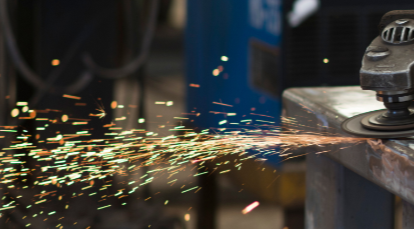Fabrication Jobs in High Demand
Fabrication Jobs in High Demand In recent years, the demand for fabrication jobs has grown. With more and more businesses looking to reduce costs and increase efficiencies. Fabricators are becoming increasingly valuable assets to many organisations. This article takes a closer look at the increasing demand for fabrication jobs, the types of jobs available, and…

Fabrication Jobs in High Demand
In recent years, the demand for fabrication jobs has grown. With more and more businesses looking to reduce costs and increase efficiencies. Fabricators are becoming increasingly valuable assets to many organisations. This article takes a closer look at the increasing demand for fabrication jobs, the types of jobs available, and the associated requirements.
Types of Fabrication Jobs in Demand

The need for fabricators is growing quickly due to increased demand from various industries such as automotive, aerospace, medical technology, construction and renewable energy. There is also demand for customised metal works in large-scale infrastructure projects such as bridges and water treatment plants. Here are some examples of fabrication jobs currently in high demand:
Metal Workers – Metal workers use lathes, drill presses and other tools to shape metal components according to design drawings. They must have good knowledge of metallurgy and the ability to interpret technical drawings accurately.
Welders – Welders join two pieces of metal together by melting them with a high temperature flame or electric arc process. They must possess strong technical skills and be certified according to industry standards such as AWS (American Welding Society).
CNC Machinists – CNC Machinists operate computer numerical control (CNC) machines that use automated programs to shape components accurately according to exact specifications. They require extensive knowledge of engineering principles supplemented with advanced programming skills.
The Requirements for Fabrication Jobs

Due to the increasing demand for fabricators, employers often look for candidates with specific qualifications or certifications related to the job being applied for.
Typically this includes completing a relevant diploma or trade program in fields such as welding technology or mechanical engineering technology. Obtaining certification from recognised bodies or having experience using specialised machine tools or software programs such as CAD/CAM (Computer Aided Design/Computer Aided Manufacturing). Additionally, many employers expect candidates who apply for these jobs to have prior knowledge about safety regulations related to working with heated tools and hazardous materials.
Overall, fabrication jobs offer excellent opportunities for motivated individuals who are highly skilled in metalworking processes augmented with strong practical know-how. With continued growth across multiple industries demanding precision manufacturing services on intricate components and structures, now is a great time to consider working in this sector!
What Does a Metal Fabricator Do?
To work as a Metal Fabricator usually requires a Certificate III in Engineering (Fabrication Trade). There are several specialisations within the fabrication field:
- Boilermaker
- Welder
- Brass Finisher
- Metal Fabricator Welder
- Metal Template Maker
- Structural Steel Worker.
Metal fabricators can find work in many industries, such as construction, automotive manufacturing and aerospace engineering. It is an essential role for companies that require customised metalworks for their projects on tight deadlines. With experience comes more responsibility which may include overseeing junior staff members and ensuring that quality control measures are met throughout all stages of production. They are skilled in cutting, shaping and forming metals to create custom components and structures. They also:
- Read technical drawings and blueprints to determine job requirements
- Select, clean and prepare metal stock
- Operate machine tools
- Cut out sections according to specifications using hand tools or power saws.
- Shape and bend metals using hand and machine tools
- Using heating and hammering techniques.
- They join parts with welding techniques, bolting or riveting before examining for accuracy.
- Finally, they file, chisel and grind welds to achieve a smooth finish.

According to EVS Metal, the future of metal fabrication looks bright. The industry has experienced tremendous growth over the past several years and is expected to continue its upward trend in the coming years.
In conclusion, TRS Resourcing can provide the perfect partner to help fill your fabricator roles and place qualified personnel in the workplace. Our teams expertise and knowledge in the field offer customers access to high-quality candidates, efficient processes and personalised customer service. Not only can you find qualified fabricators to address your specific needs, but TRS Resourcing also has an extensive job placement network that will allow you to find experienced professionals who are a perfect fit for your project. With TRS Resourcing as a partner, you can be sure your workplace projects are handled with precision, efficiency and success.
Job Seeking in fabrication? Create alerts here for jobs matching your qualifications, or check out our jobs page
Are you a Business looking for Fabrication staff to fill your roles? Let us know your requirements here or to speak with TRS Labour Hire Recruitment Consultants, don’t hesitate to get in touch with the following offices:
Labour Hire Melbourne
Call: 03 9917 3545
Labour Hire Perth
Call: 08 6205 3570

